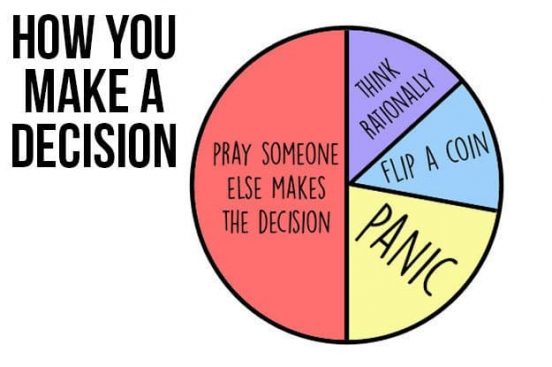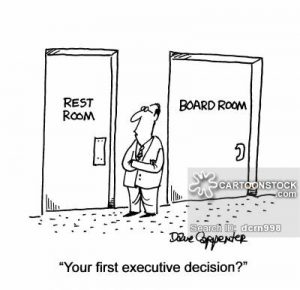*commentary on classmate’s post*
Recently, I had to make a serious decision: go to bed at 11:00 pm, or half-study, half-watch Netflix till 3:00 am. This got me thinking. How do I make this decision? Consequently, I read about how to make decisions. The author, Luciano, mentioned, you have to determine the value of your decision, know your goals, recognize the opportunity cost, and make an effort proportional to importance. Usually, I would stay up till 3:00 am, yet by taking the structured approach of decision making, I concluded that in order to be fully recharged the next day, it is best to get a good night’s rest.
In Sauder, the core of our education is based on business analysis and decision making. How can we make sure we don’t cost a company billions of dollars? Take Excite, a company which passed on purchasing Google for $750,000 in 1999, losing billions still from this decision.
So, how do we make the right decisions?
Referring to Mieka’s post, she suggests to “always properly consider the value of your savings” and to never “create apps that portray a culture as dirty.”
Her first suggestion stems from her dilemma of going across town to cut costs on a backpack and a computer. The backpack would cost $80 across town, compared to the original $140 nearby, and the computer would cost $1,125 on the other side of town, compared to the original $1,185 nearby. Both of these would save $60, but Mieka mentions most would go across town for only the backpack as $60 savings for the backpack is 43% off, in contrast to it being only 5% off of the computer.
What I recollect from Mieka’s dilemma is the fact that we have to consider what is the value of what we are giving up (time spent on the trip across town) versus the value of what we gain (43% off the backpack or 5% off the computer.) Most people would go across town for the backpack as saving $60 on a lower price is perceived as a greater value gain than saving $60 on a high priced item.
In her second suggestion to never “create apps that portray a culture as dirty,” Mieka refers to an Ontario company releasing a video game portraying Chinese restaurant employees “chasing cats and dogs around with cleavers.” So, always consider the image your company will portray when making a business decision.
Mieka’s blog post is very valuable as she captures the importance of decision making in our personal lives, mentioning a mundane everyday dilemma, and in our professional lives, mentioning the Ontario company’s controversial, incorrect decision.
Whether you follow Luciano’s 4 steps for correct decision making or Mieka’s 2 suggestions, you will be on your way to becoming an expert on managerial decision-making.
-448 words





